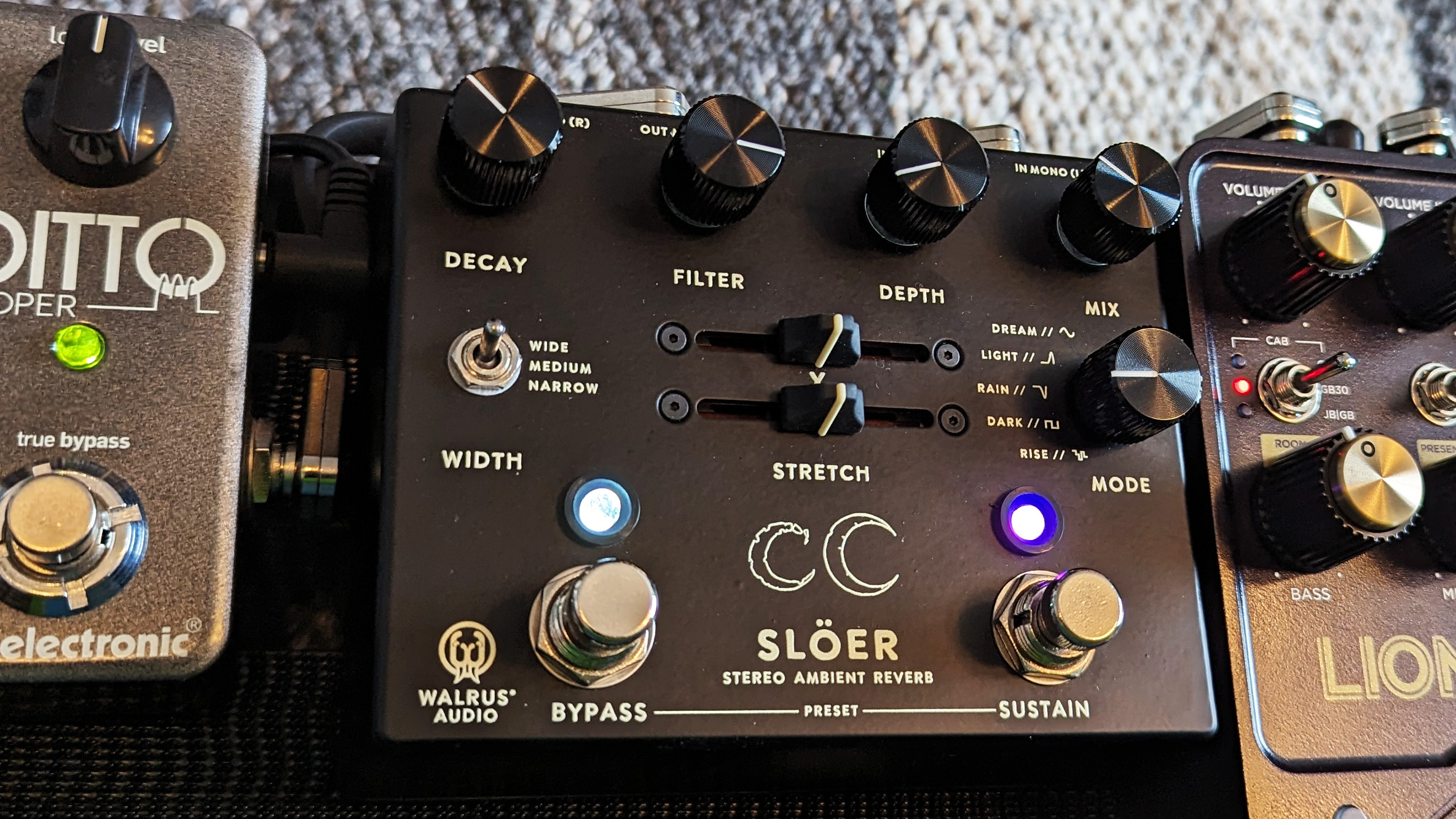MusicRadar Verdict
One of the very best ambient reverb pedals around just got even better – Walrus has expanded the sounds and controls for the Slöer, in addition to providing a stereo experience for a worthwhile update on the popular Slö and Slötvå that you will want to get lost in.
Pros
- +
New algorithms and modes add even glorious reverb scope
- +
The sustain switch is great for solo jamming
- +
For stereo rig users this is the one to buy
Cons
- -
It's a higher price for an ambient reverb but a great one
- -
No MIDI or expression pedal control
MusicRadar's got your back
Walrus Audio Slöer Stereo Ambient Reverb pedal: What is it?
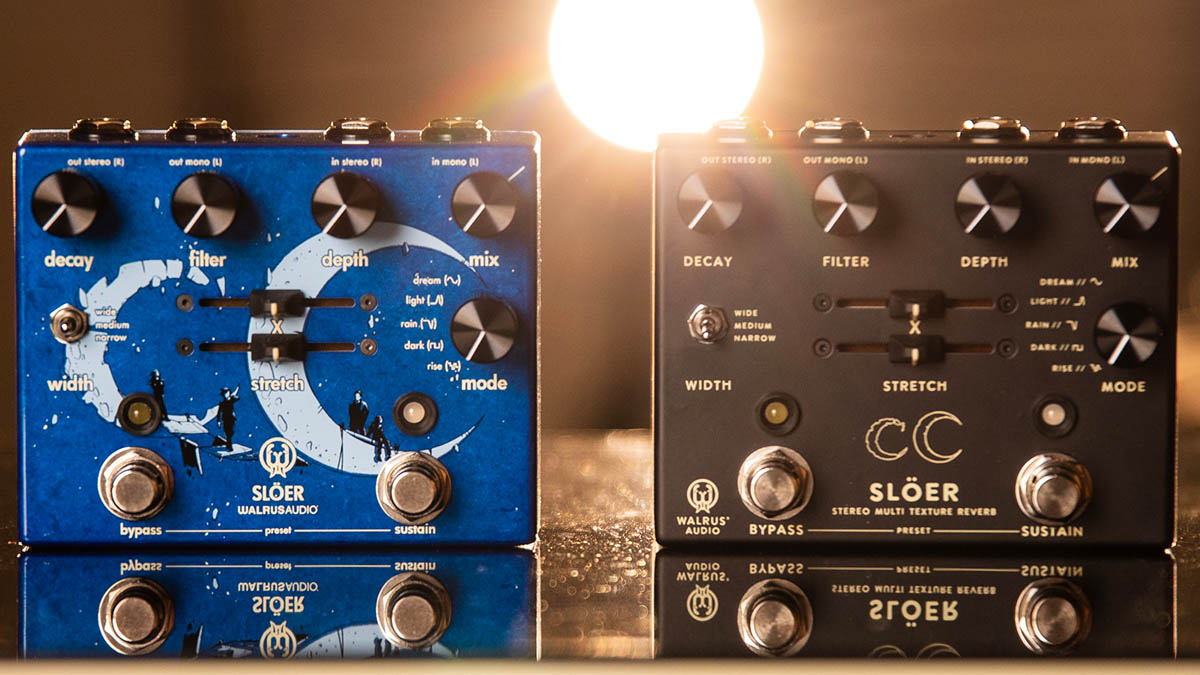
There's a myth that brands, guitar magazine and yes, this website have sometimes been guilty of sustaining; the idea that most guitarists play live. They don't – it's not even an ambition for most of us. But there's absolutely nothing wrong with that because it shouldn't be viewed as the end goal. For some it is something to work towards, if they want it. And that's great but for most of us, all that really matters is having fun. Which is why there are so many effects pedals.
The effects we choose to use at home don't have to cut through in a mix – they don't have to make sense in the context of a rhythm section. Sure, as a reviewer it's something I have to consider for the players that need to know. But while it's tempting to think the rise in ambient effects has answered the call of a sharp rise in new shoegaze and post-rock bands form (no bad thing and Maybeshewill's John Helps even told us their 2021 album No Feeling Is Final was partly inspired by this review pedal's predecessor, the Slö), it's really because they are just great fun for players who are happy making sounds at home.
Walrus Audio obviously knows this and its Slö Multi Texture Reverb was a recognition that some of us want to transport ourselves into performing a film soundtrack using triads after a long day at work. It was a pedal that made everything sound epic and has been a top seller for the company over the last few years. Then came the Slötvå and it brought presets. Now we have Slöer: the stereo one. But for the extra cost and footprint size we'd expect more than that, and this does indeed offer it.
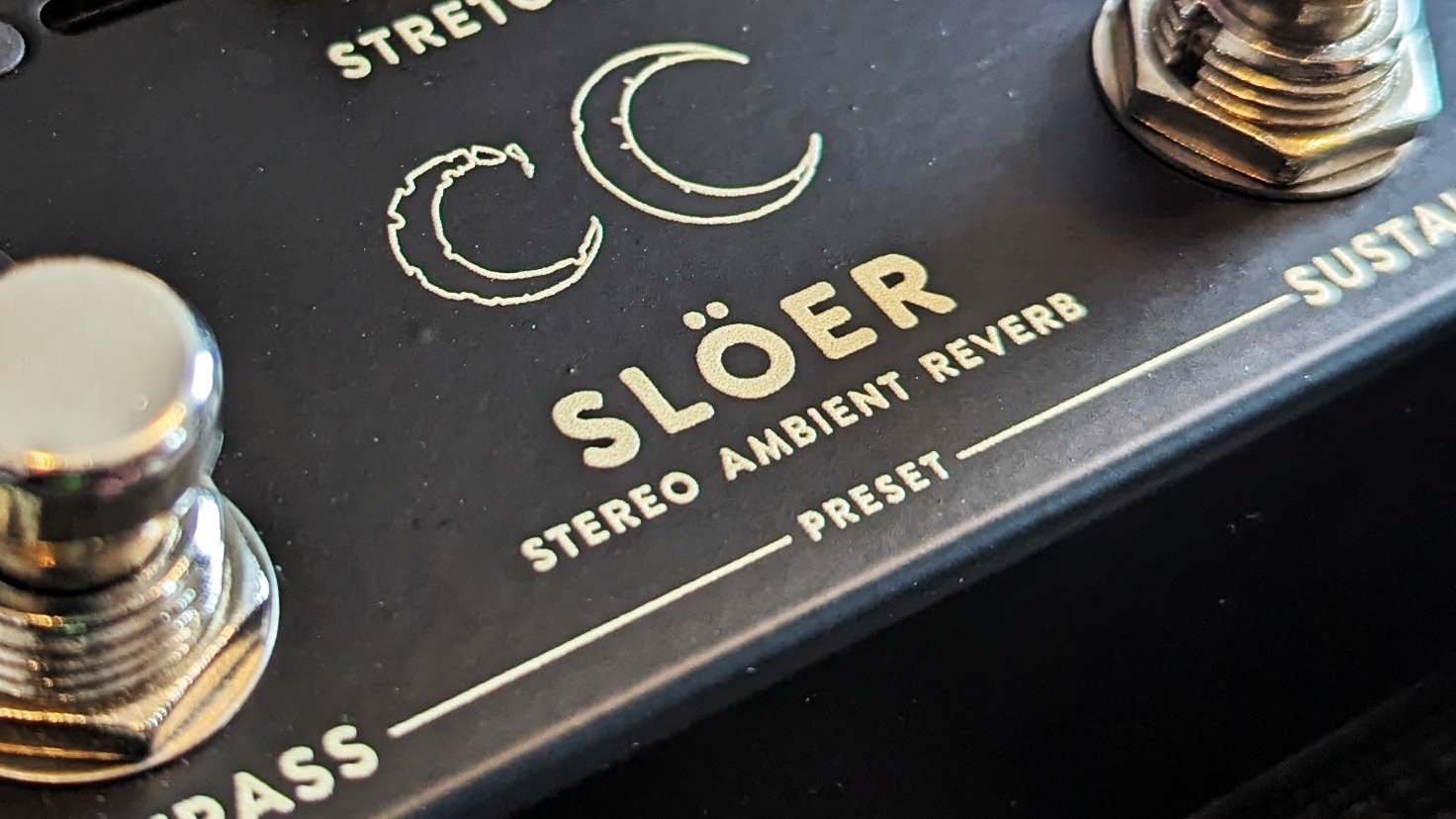
An issue I've personally had with both predecessors is they could have been easier to use in terms of dialling in sounds fairly quickly. In addition to whether I think the extra features justify the added outlay, I'll be looking at whether the control layout of Slöer improves usability over its predecessors.
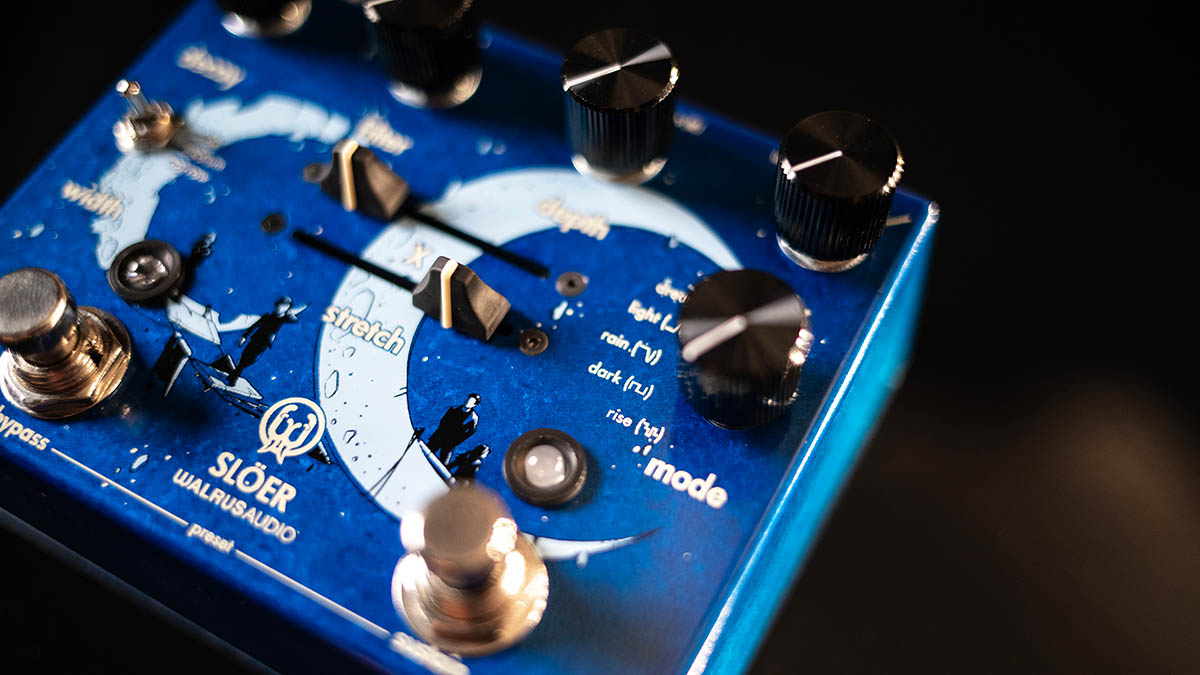
Walrus Audio Slöer Stereo Ambient Reverb pedal: Performance and verdict
While the preset slots remain at three in this shorter, wider pedal case, reverb modes and modulation types are up from three to five. There's also now a stereo width control to select from Wide, Medium and Narrow options. Oh, and it's available in the now customary blue of its two predecessors, and a new sleeker black which we have here.
Keep the Depth modulation and the Decay before midnight and Rain can be the Sloer's version of a more always-on reverb
But getting straight to those sounds, Rain is a new mode that immediately appeals. "Tappy and trippy, this program creates a unique effect with lower levels of diffusion allowing the reverb, delay taps to audibly create an echo-like effect within your reverb," says Walrus. Don't be confused by all that. It's got some lovely slapback but Rain can also be dialled down to be the subtlest mode here, and that's a relative term with this pedal but it has the kind of scope that brings to mind the Cloudburst Cloud algorithm. Keep the Depth modulation and the Decay before midnight and Rain can be the Sloer's version of a more always-on reverb. This was something I wasn't expecting, but brings more value to the package in terms of usability.
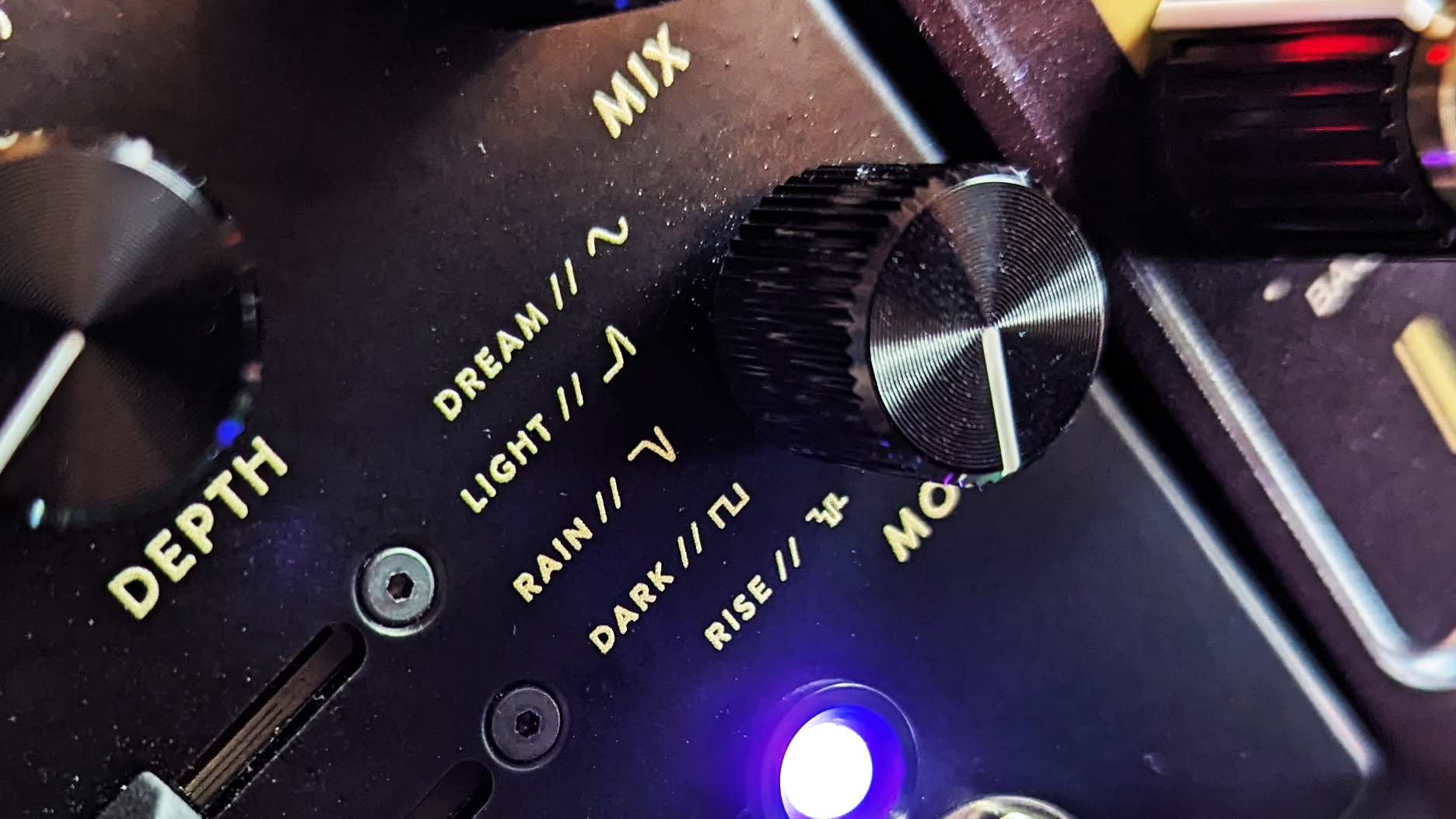
Rain's appeal extends to the Sustain footswitch on the right-hand side too, and that suitability as an inspiring home pedal for solo playing. Because its decay doesn't effect pitch it is probably my favourite for just solo jamming – like the previous two reverb pedals it continues the reverb trail for as long as you hold it down (it's latching in the Dream mode where you can click the sustain on and off with the footswitch but follows your playing in the others) and in Rain feels much more natural compared to the other, more distinctive algorithms, but in a very useful way. Needless to say, like the other two that came before it, this is an exceptionally good pedal for creating pad tones to loop and jam over and a big part of the appeal. Also a life-saver if you need to fill an awkward silence between songs in a live set!
Want all the hottest music and gear news, reviews, deals, features and more, direct to your inbox? Sign up here.
The other new mode is Light – a high-octave shimmer that works in the opposite way to the established Dark's lower octave decay. It's kind of its more optimistic-sounding sibling. This is an interesting one to shape with the new slider controls – and who doesn't love a slider control?
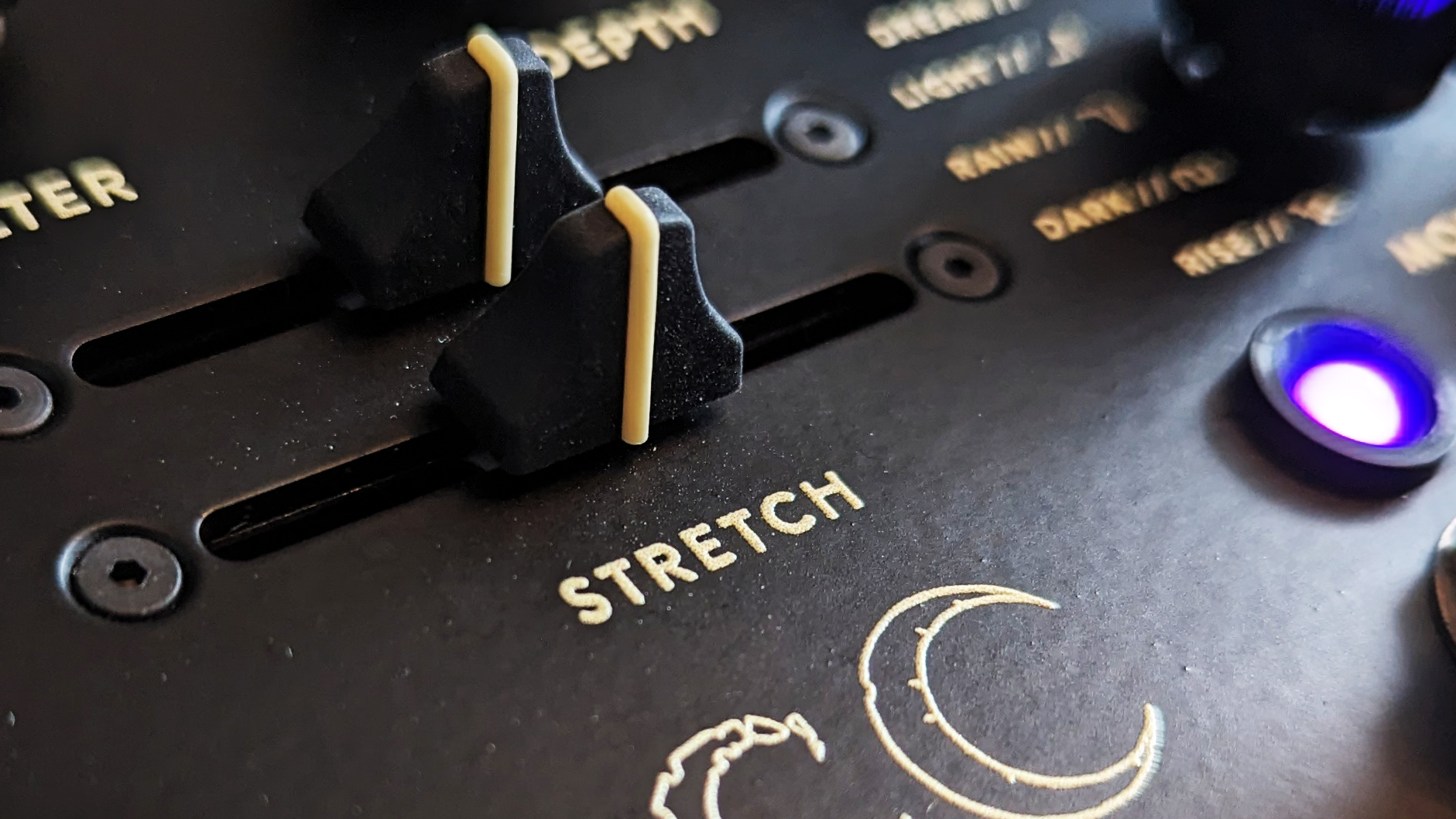
They certainly add a hands-on appeal to sound-shaping here. The X from the previous pedals changes its role according to the algorithm but is now a fader control – for Light it controls the level of shimmer (I'm not usually a fan of shimmer but Walrus's take on it is my favourite and doesn't sound naff at all).
For the Rain algorithm, X controls diffusion. Set X lower to get definition between the echo repeats coming through, with them smearing more as X is moved to the right. Decay controls how long those repeats go on for. This blurring of the lines between delay and reverb that we saw in the Lore shows that Rain can be as dramatic as it is subtle depending on your choices. It's also become my go-to mode on this pedal.
Stretch is a real character-shaper to use in conjunction with the Filter's tone control
Stretch is a new parameter that manipulates the sample rate of the digital signal processing. It has a huge effect; turned down it can darken the tone, lengthen the reverb time and allow random sample artifacts to seep in. It's a real character-shaper to use in conjunction with the Filter's tone control.
Maybe it's psychological, but in having this slider section and the enhancement the Stretch offers, I find quick tweaking more logical now than on the previous pedals. The added footprint feels justified. And there's also two new modulation modes to match the boosted reverb algorithm sections; their value dependent on how much you use the Depth's modulation in your reverb in the first place, but adding even more to the wealth of ethereal sounds available here. As before. by holding the bypass switch and changing the Depth control, you can alter the rate of the modulation too.
The new additions to the original Sine, Warp and Sink are Square and Random. All accessed via holding the Bypass switch and turning the Mode knob. Square is the symmetric stepped modulation while Random picks random values and is not abrupt as it's name may suggest. Like on the previous pedals, its impressive how tastefully modulation can be dialled into the Slöer, though Square can certainly get queasy if you want it.
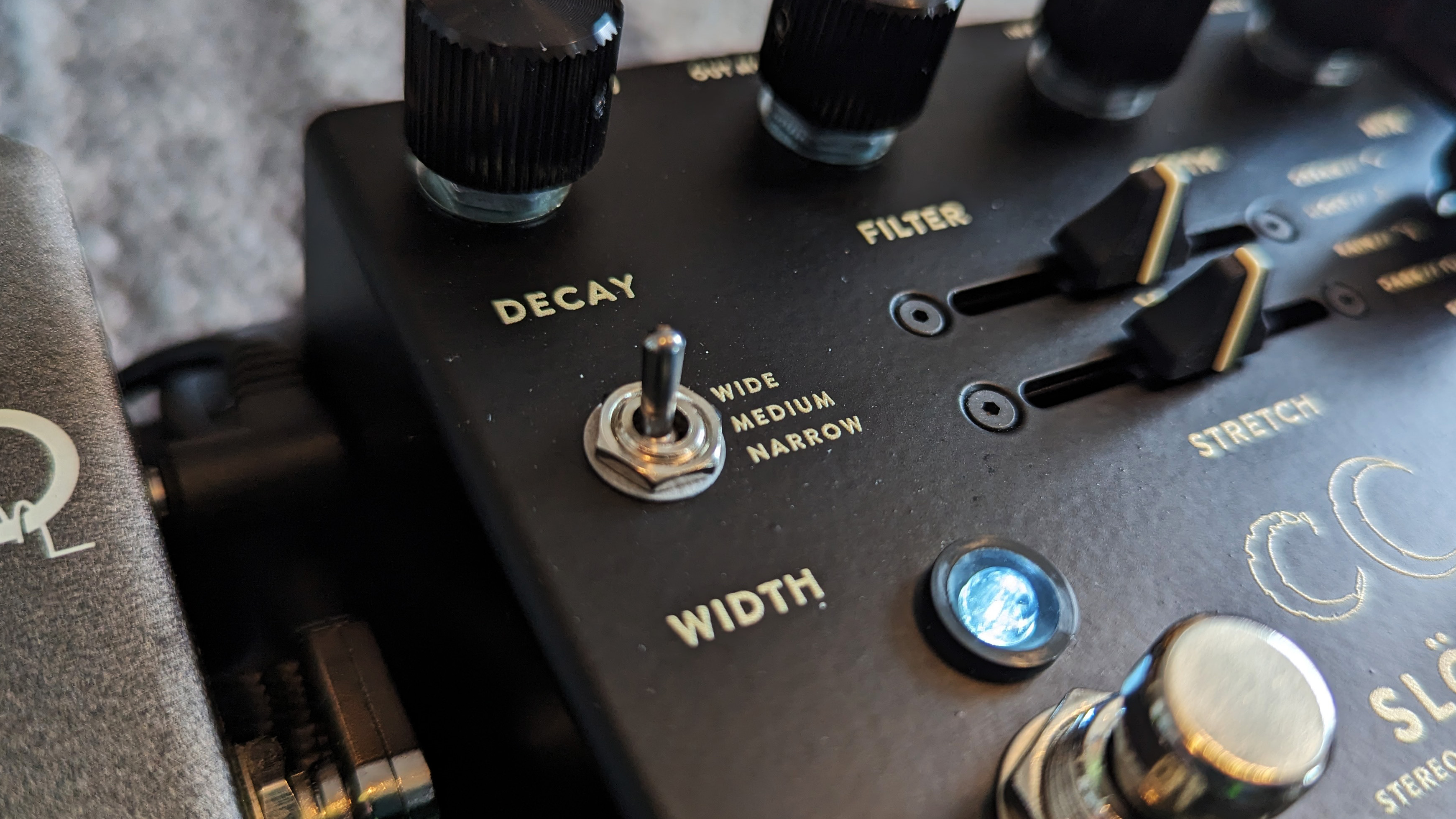
The mini Width toggle switch lets you select between Wide (individual signals to the left and right channels), Medium (milder stereo diffusion spread) and Narrow (parallel mono) for the stereo field in the left and right channels, and the differences are dramatic. You'll want to stay in Wide for a while because it sounds glorious but in a live and recording mix, everything can change and it's great having that switchable control at hand. It reflects Walrus's commitment to making Slöer a comprehensive next step.
For those of us who play and record a lot at home and would like to expand the scope for rhythm-like sounds, this is a worthwhile investment that offers huge inspiration
After using the Slötvå, I already knew the sounds of this pedal would be great. The question for existing Slö and Slötvå owners is whether it's worth upgrading. If you have embraced a stereo rig you won't need help from me justifying it - huge reverbs that now sound even grander with control over the added width. But for big fans of the ambient reverb sounds of those pedals, those added algorithms and controls definitely enhance and widen the experience, and if you're jumping up from original Slö, you'll want the presets too… if you can free up a little space more on your pedalboard. For those of us who play and record a lot at home and would like to expand the scope for rhythm-like sounds, this is a worthwhile investment that offers huge inspiration.
MusicRadar verdict: One of the very best ambient reverb pedals around just got even better – Walrus has expanded the sounds and controls for the Slöer, in addition to providing a stereo experience for a worthwhile update on the popular Slö and Slötvå that you will want to get lost in.
Walrus Audio Slöer Stereo Ambient Reverb pedal: The web says
"Walrus Audio has taken the Slö’s blueprint to new frontiers of inspiration here; if you’re looking to immerse yourself in ambient and experimental reverb, this could be your final destination."
Guitar.com
Walrus Audio Slöer Stereo Ambient Reverb pedal: Hands-on demos
Mark Johnston

Ambient Endeavors
Guitar Bonedo
Walrus Audio Slöer Stereo Ambient Reverb pedal: Specifications
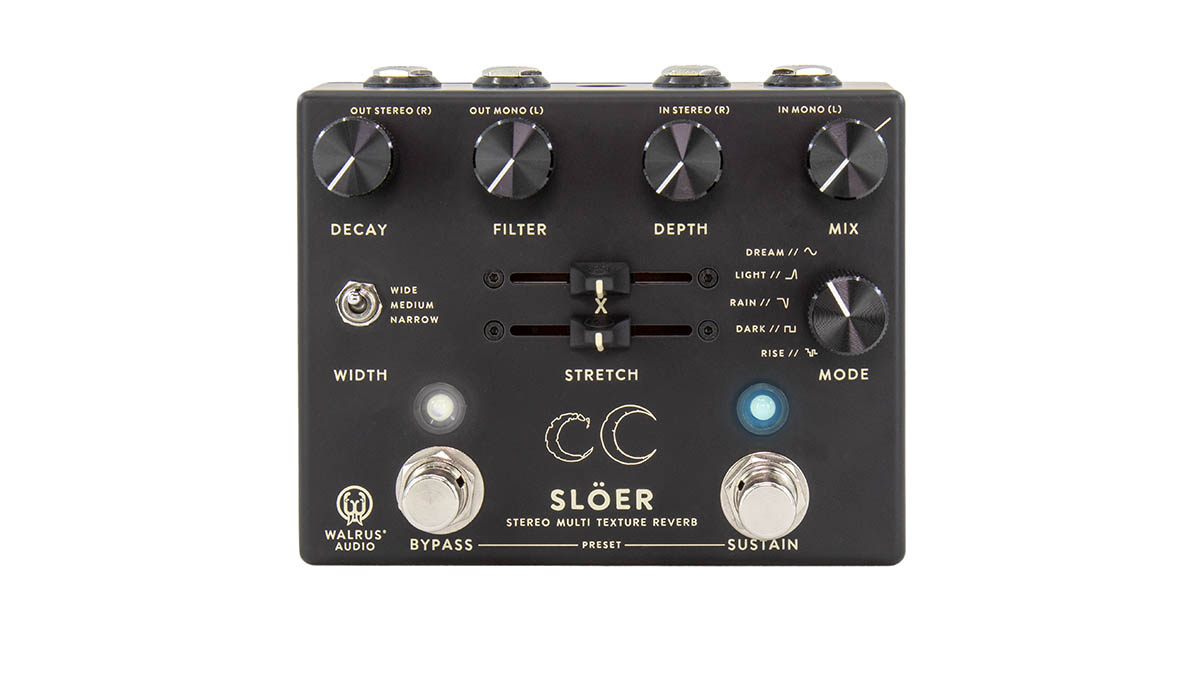
- TYPE: Digital ambient reverb pedal
- ORIGIN: USA
- CONTROLS: Decay, Filter, Depth / Rate, Mix, Wide/Medium/Narrow stereo Width mini toggle, X and Stretch siders, reverb and modulation Mode, Bypass and Sustain footswitches
- FEATURES: Stereo in and out,
- FINISH OPTIONS: Lollipop Blue, Matte Black (as reviewed)
- BYPASS: Buffered
- POWER: 9V centre-negative power supply (100mA minimum draw, PSU not included)
- CONTACT: Walrus Audio

Rob is the Reviews Editor for GuitarWorld.com and MusicRadar guitars, so spends most of his waking hours (and beyond) thinking about and trying the latest gear while making sure our reviews team is giving you thorough and honest tests of it. He's worked for guitar mags and sites as a writer and editor for nearly 20 years but still winces at the thought of restringing anything with a Floyd Rose.
